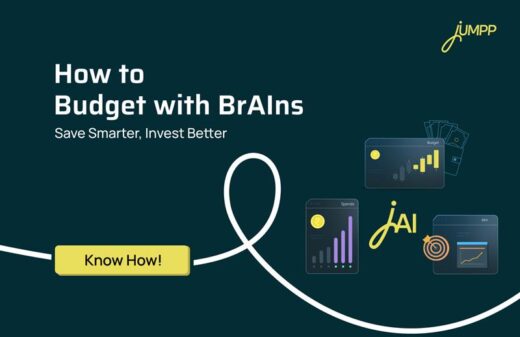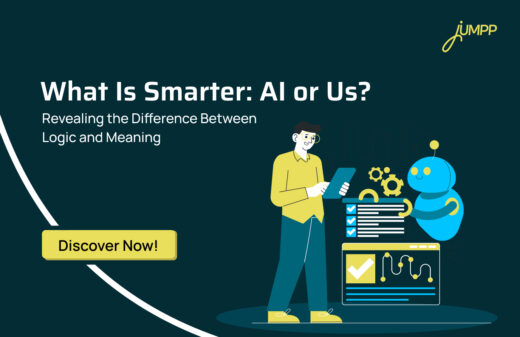Can AI Tools for Financial Planning Help You Save More? Find Out Now!

India is at a turning point. With growing digital access, rising financial awareness, and the need for smart planning tools, AI is becoming the backbone of modern financial decision-making. The rise of AI in financial planning has completely changed how we manage money, save for the future, and make investment decisions. With the spread of knowledge and growth of fintech platforms making financial services accessible even in Tier-2 and Tier-3 cities, AI is now available to every Indian who wants to secure their future.
Let’s understand how AI is reshaping financial planning and analysis.
Meet jAI: Your Smart Finance Guide
Powered by cognitive and predictive AI, jAI helps you understand your money better in real time that too, in your own language. It tracks your spending, creates smart budgets, and shows where you can save. You just have to link your accounts, and jAI gives clear, simple insights to help you spend wisely and invest smarter.
Ready to take control of your money? Start your jAI journey today!
What is AI in Financial Planning?
AI (Artificial Intelligence) uses machines and software to analyse large sets of financial data and provide smart suggestions. In simple terms, it helps us plan money matters with more accuracy and less manual work.
AI in financial planning refers to the use of machine learning and data analysis to:
- Track financial behaviour,
- Forecast future needs,
- Automate recommendations, and
- Help individuals and businesses plan, save, invest, and grow wealth in a structured way.
Why AI is the Future of Financial Planning in India
This is because AI is changing the way Indians approach money.
Take a look at these-.
1. Smart Budgeting and Expense Tracking
AI tools automatically analyse bank transactions, sort expenses into categories like groceries, bills, rent, etc., and present them in a clear report. This eliminates the need for manual tracking and gives users full control over their monthly cash flow.
A working professional who regularly overspends without realising it can now view a detailed monthly breakdown automatically. AI could alert when spending exceeds usual limits and even suggest areas to cut back, such as reducing food delivery or online shopping expenses.
2. Personalised Investment Recommendations
AI creates investment suggestions based on a user’s age, income, financial goals, and risk appetite. It understands whether a person is saving for retirement, a home, or a child’s education and tailors the investment path accordingly.
A 30-year-old aiming to buy a house in 7 years receives a step-by-step plan. The AI can calculate the amount to be invested monthly and adjust the plan as goals are updated.
3. Goal-Based Financial Planning
One of the biggest benefits of AI is its ability to plan with precision. Whether it’s saving ₹25 lakh for a child’s higher education, building a retirement corpus of ₹1 crore, or creating an emergency fund, AI helps define the goal, track the progress, and adjust the strategy if needed.
If someone wants ₹30 lakh in 10 years, AI can calculate how much they need to invest monthly, assuming a realistic return. If their income changes or they miss a few instalments, AI updates the target path instantly.
4. Tax Planning and Deductions
Filing taxes and choosing the right tax-saving options can be confusing. AI simplifies this by analysing your income, deductions, and investments and then recommending the best tax-saving strategy.
A salaried employee could receive suggestions based on Sections 80C, 80D, and 80G, with estimated tax savings and reminders before the due date without the need for a financial advisor.
5. Real-Time Financial Analysis for Businesses
Businesses often struggle with managing multiple accounts, vendors, and reports. AI tools now provide real-time cash flow updates, profit-and-loss insights, and expense trends—without needing an entire finance team.
A small business owner running a logistics company can instantly track rising fuel costs, monitor delayed payments from clients, and optimise expense categories—all from a single dashboard powered by AI.
6. Fraud Detection and Financial Safety
Security is a growing concern in the digital age. AI helps by identifying unusual behaviour and preventing fraud before it causes harm. It learns regular transaction patterns and flags any suspicious activity.
If your account is usually accessed from one city and suddenly there’s a login from another state or country, AI can trigger an alert or even freeze access temporarily to prevent fraud
Final Thoughts
AI in financial planning is a transformation. It empowers users to:
- Track money smarter
- Invest with confidence
- Save more, and
- Take control of their future—without the complexity
As digital-first platforms emerge, AI will lead the next generation of financial success stories in India. The time to adopt it is now.
India has one of the youngest populations in the world. More people are earning early, spending online, and using digital wallets and UPI. But at the same time, financial literacy is still low, and many don’t know how to plan for the future.
This is where AI in financial planning makes complex financial decisions simple and accessible.
AI in Financial Planning and Analysis: FAQs
AI (Artificial Intelligence) in financial planning means using smart technology to help you manage your money better. It tracks your spending, suggests investments, and helps you plan for goals like buying a house or saving for retirement.
Yes. AI can analyse your income and expenses, spot where you overspend, and give tips to improve your savings. It can also automate monthly investments so you build wealth without missing payments.
Most platforms use secure technology and data encryption. However, you must always choose tools from trusted fintech companies and avoid sharing passwords or OTPs.
Not at all. AI tools are made for beginners too. They use simple dashboards and alerts, so even if you’re new to finance, you can understand where your money is going and how to grow it.
Yes. AI tools can suggest the best tax-saving investments based on your income. They also remind you about important tax deadlines and help organise your documents for filing.
AI is fast, data-driven, and available 24/7. It gives suggestions based on numbers, not emotions. But it may not understand personal situations the way a human advisor can.
No. AI tools are designed for everyone, whether you earn ₹15,000 or ₹1 lakh a month. Many platforms offer free or low-cost AI features to help all users make smarter financial decisions.






